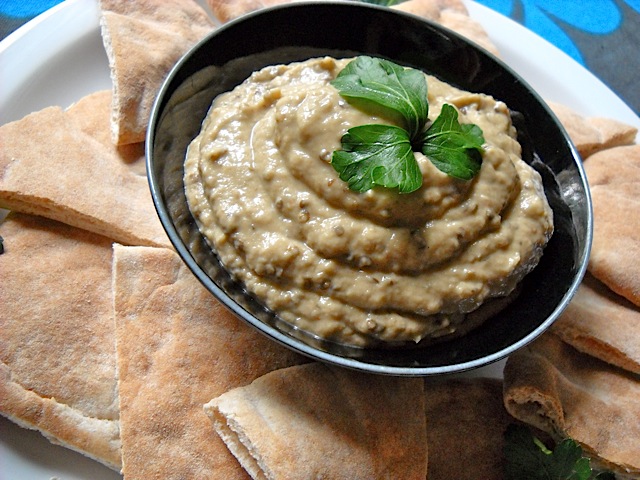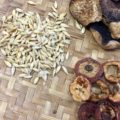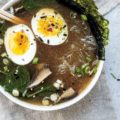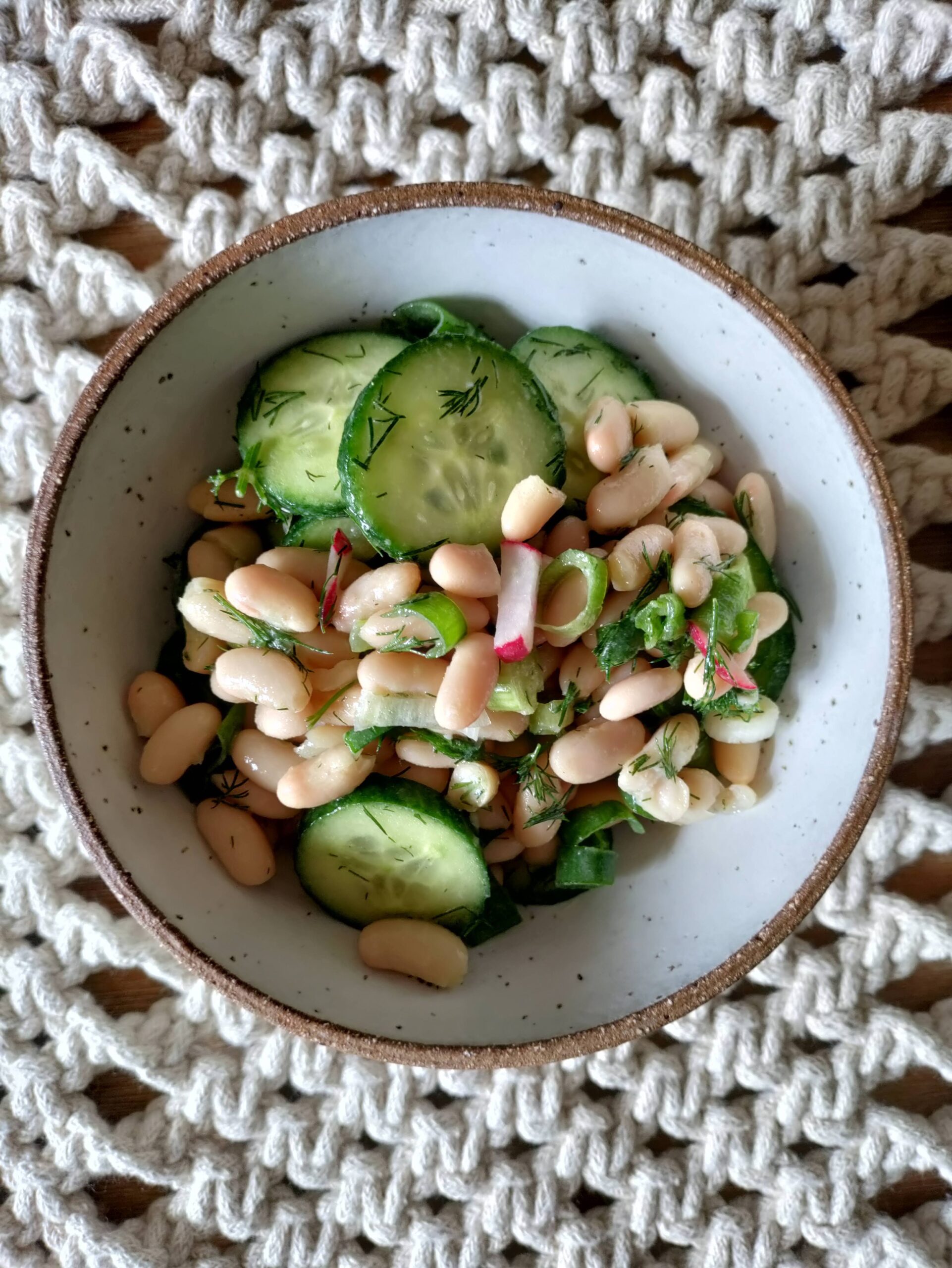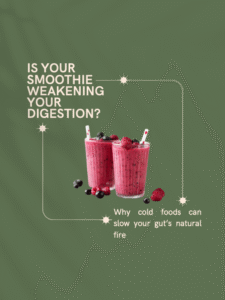
When cold foods cool more than just your tongue
In modern wellness culture, smoothies have become almost sacred. They are the colourful symbol of vitality, self-care and convenience. Blending raw greens, frozen fruit and nut milk feels like a positive act of nourishment. But in Traditional Chinese Medicine (TCM), even the most virtuous green smoothie can sometimes cool the very fire that your digestion depends on.
The Spleen: The Alchemist of Digestion
In TCM, the Spleen is not only an organ of blood production. It is the energetic centre that transforms food into Qi and Blood, the vital substances that sustain everything from movement to thought. The Spleen and its partner, the Stomach, are known as the “Root of Post-Heaven Qi”, the source of nourishment we create each day through eating, breathing and living.
To perform this transformation, the digestive system relies on warmth. It is an inner fire that “cooks” and refines what we consume. Think of your stomach as a pot simmering on a gentle flame. When you pour in icy smoothies, cold salads or raw juices, you are cooling that flame. The result is a pot that struggles to cook.
What Happens When the Fire Goes Out
When the Spleen’s transformative power is weakened, food can stagnate or fail to be fully converted into usable energy. Over time, this can lead to what we call Spleen Qi Deficiency or Dampness, which might appear as:
- Bloating or fullness after meals
- Fatigue that worsens after eating
- Loose stools or irregular digestion
- Sugar cravings and heaviness in the limbs
- Foggy thinking or low motivation
From a biomedical view, this may relate to sluggish metabolism, disrupted gut motility or microbiome imbalance. The ancient language of TCM describes the same pattern in a poetic way: cold injures transformation.
Cold Foods and Modern Habits
The modern diet is often cold, raw and rushed. Smoothies from the fridge, salads eaten standing, coffee replacing breakfast. While these foods can be rich in nutrients, their energetic nature is often too cooling for the body’s delicate digestive rhythm, particularly for people who run cold, have low energy, or experience bloating and fatigue.
Chinese medicine views this through the lens of balance. Cold and raw foods have their place. They can clear excess heat, cool inflammation and feel refreshing in summer. But eaten daily, and especially in cooler weather, they can weaken the Qi that fuels your warmth and resilience.
How to Make Your Smoothie More Spleen-Friendly
You do not have to abandon your morning ritual, just adjust the temperature and energetics.
Try:
- Letting ingredients come to room temperature before blending
- Adding warming herbs such as fresh ginger, cinnamon or cardamom
- Swapping frozen fruit for lightly stewed apples or pears
- Drinking your smoothie slowly, rather than on the go
- Pairing it with a small bowl of warm porridge or congee in cooler months
The Deeper Symbolism: Warmth as Connection
At its heart, this teaching is about more than food. It is about warmth, not only of temperature but of attention. When we slow down to prepare and savour our meals, we bring fire back into the act of nourishment. The Spleen thrives on rhythm, warmth and mindfulness.
So the next time you reach for your smoothie, pause. Ask yourself: what does my body need today, cooling or kindling?
True nourishment is not always in the ingredients. Sometimes, it lies in the temperature, the pace, and the quiet intention to feed your inner fire.
If you need some recipe inspo, click here.
Adriana Dalic


